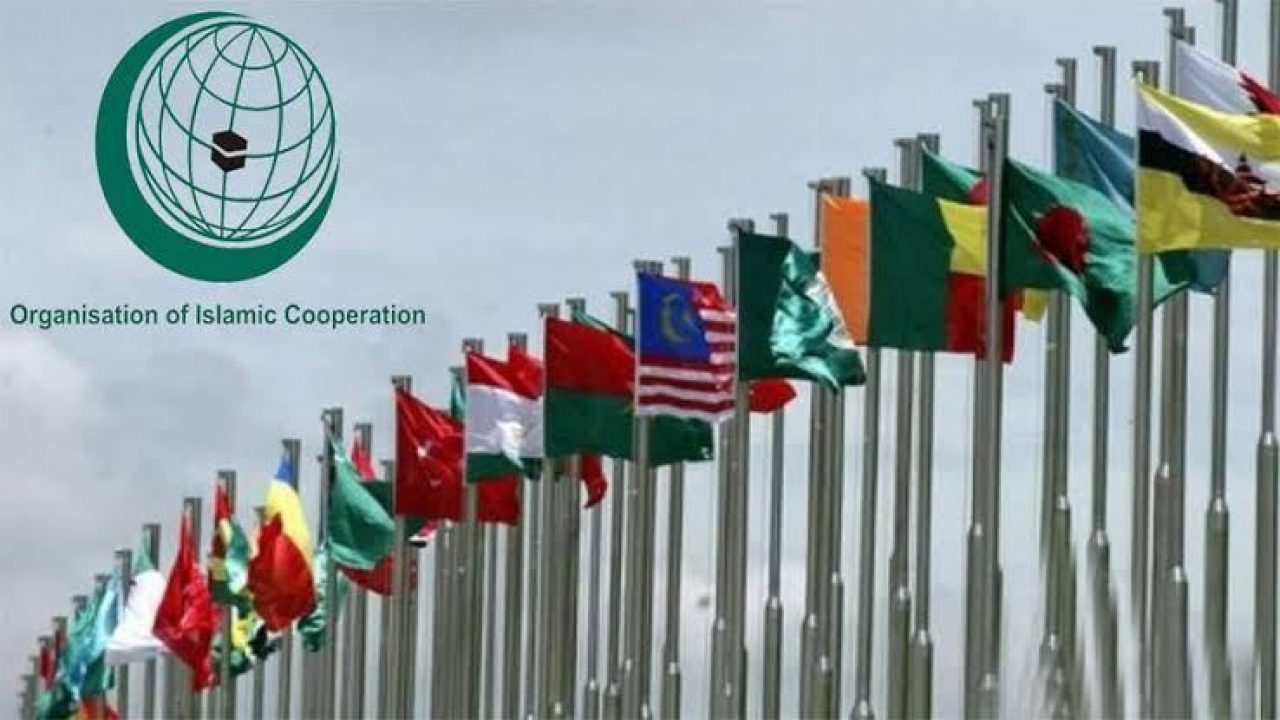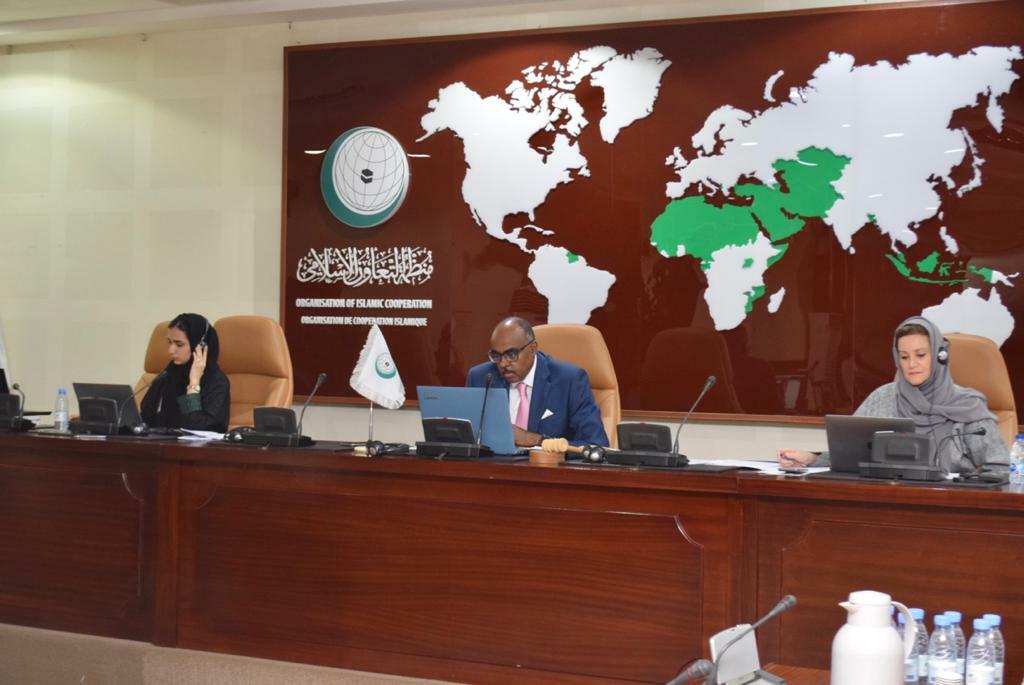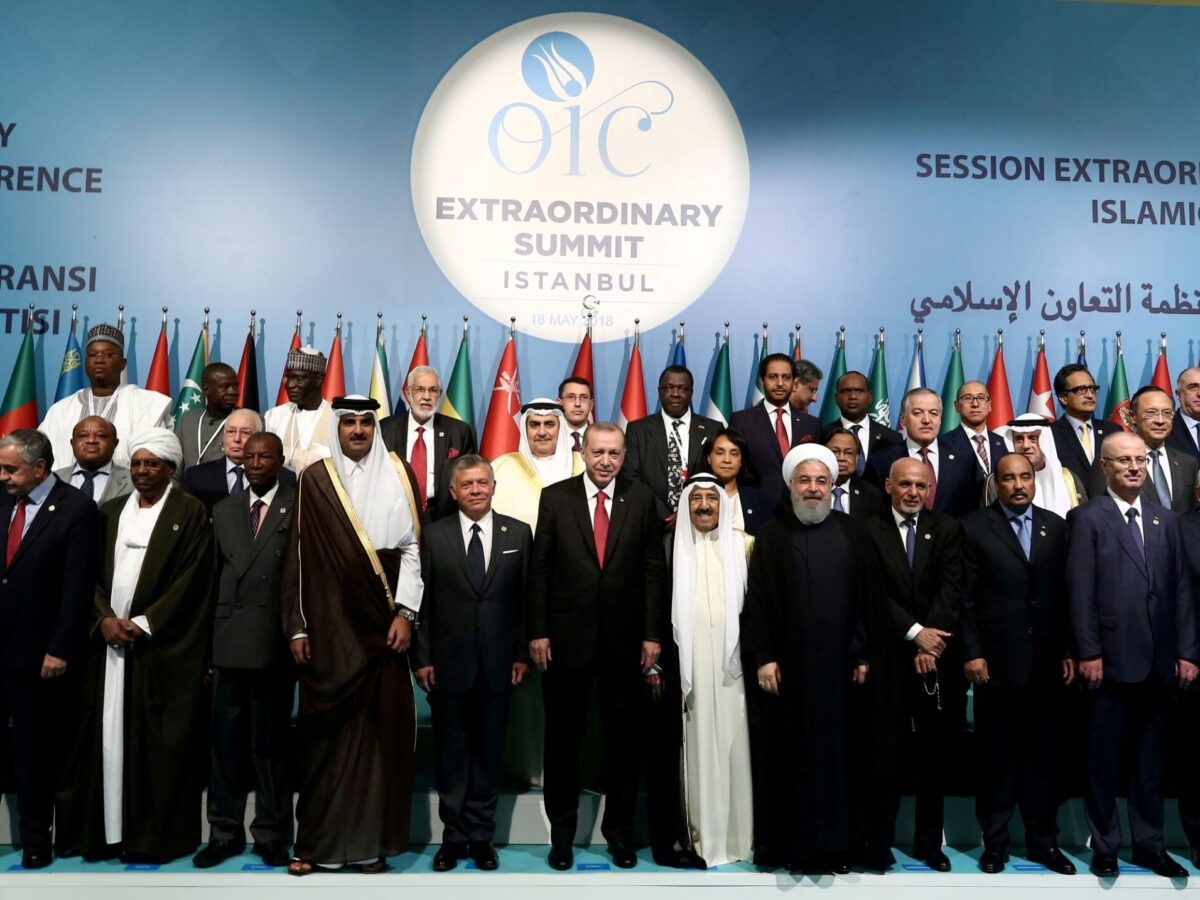The Organization of Islamic Countries (OIC) is the sole representative organization of the Muslim world. It is an inter-governmental organization consisting of fifty-seven states which represent one-quarter of the members of the United Nations.
The main objectives of the Constitutional Charter of the Islamic Cooperation are aimed at improving and strengthening solidarity among Member States, protecting Islam’s true image and preventing its defamation, promoting dialogue among civilizations and religions, striving to get integrated and sustainable human development, and ensure the development of the Members in the organization. Despite these objectives, the Muslim world is still witnessing a threat to their unity and is unable to emerge as a single bloc.
 Failures of OIC on Political Issues:
Failures of OIC on Political Issues:
Among the main failures of OIC includes lack of cohesion and unity, as there are inter-state differences among the member states, there are Shia-Sunni conflict, antagonistic foreign policy with major Western world influence and territorial disputes. Likewise, there is rising Islamophobia as in the western world Islam is perceived as a threat to Western values such as liberalism, democracy, individualism and women emancipation. Moreover, there is terrorism that has given bitter image of Islam. The growing incidence of violence and suicidal attacks, sectarian violence and increasing growth of religious-political parties, which has depicted negative Western approach about Islam.
Israel-Palestine issue:
With OIC backing, the Palestine Liberation Organization (PLO) received recognition from the international community to represent stateless Palestinians. Israel became even more aggressive in fighting against the Palestinians and establishing its legitimacy in Palestine. In this conflict Israel defeated not only the Palestinians, but all the OIC countries.
Kashmir issue:
Like the conflict in Palestine, the Kashmir dispute is another of the oldest unresolved conflicts at the United Nations. The OIC has adopted numerous resolutions with little impact in reality in resolving the crisis. Overall Kashmir has become another source of constant difficulty for Muslim societies today.

Human rights:
The OIC has been criticized for not discussing the treatment of ethnic minorities in member countries, such as the oppression of the Kurds in Syria and Turkey, the Ahwaz in Iran, the Hazaras in Afghanistan, the ‘Al-Akhdam’ in Yemen, or the Berbers in Algeria.
Role of OIC in Conflict Resolution:
Iran-Iraq War
The Iran-Iraq war of the 1980s was a testing ground for OIC’s ability to resolve intra-Muslim conflict. The OIC played a mediating role as war broke out in September 1980. The Iranian leadership did not seem to trust the OIC.
The OIC formed an “Islamic Peace Committee” and continued its mediating role. It proposed a cease-fire with the withdrawal of Iraqi troops from Iranian territories. It urged both countries to exchange declarations of non-interference in the internal affairs of the other country. But both did not paid attention to these proposals. The Iranians were of the view that the OIC first identify the aggressor in the conflict and punish them. Iran wanted the OIC to do this without participating in its meetings. Thus, the OIC lost its credibility as a mediator.
September 11 Attack:
Muslim internal disputes have gotten worse since the attacks of September 11, 2001. As a result, the OIC General Secretariat in Jeddah, Saudi Arabia, established a dedicated unit known as the “Peace, Security and Mediation Unit (PSMU). It was stated that the PSMU would initially concentrate on creating capacity, after which it would primarily operate by monitoring actual and potential crisis situations in order to recognise and assess the main causes of conflicts and decide how to settle them. However, the OIC has not done a very good job of handling these situations.
 The Prospects of OIC:
The Prospects of OIC:
Following a discussion of the organization’s failings, the issue of whether the OIC has any chance of success inevitably emerges. When it first existed and even now, the OIC had the capacity to play a significant role in world politics. The OIC is unfamiliar to most people, despite being the second-largest intergovernmental body after the United Nations. This is as a result of its poor execution. When it first appeared, it gave many people reason for hope, but since then, their hopes have been dashed by its failure. This concept can be discovered by conducting a brief analysis of the Afghan conflict.
Al-admission Qaeda’s of guilt in the 9/11 attacks and the Taliban’s steadfast defence of al-Qaeda leadership led the United States and its allies to consider invading Afghanistan. The U.S. failed to completely eliminate either al-Qaeda or the Taliban, despite the civilian deaths that allowed it and its allies to take control of the entire country. It is reasonable to assume that the OIC will be able to permanently reduce antagonism.
Conclusion:
On the international map, the OIC has served as the only voice of the Muslim Ummah, speaking for 57 different countries, however this organisation has fallen short of what the Muslim Ummah had hoped for. The OIC’s weakness stems from a lack of internal coherence. It is unrealistic to expect an organisation that has served as little more than a debate forum and a platform for making meaningless announcements for almost four decades to suddenly transform into a proactive international entity. Regarding the main issues facing the Muslim Ummah, such as Palestine, terrorism, and globalisation, the OIC merely established contact groups and passed resolutions without taking any concrete action that would pose a significant threat to aggressors. The difficulties thus remained the same.
OIC should develop a mode to act practically worldwide. For this purpose, OIC should follow the footsteps of other successful organizations of the world like EU and Council of Europe. OIC needs to create a strategy for acting practically everywhere. OIC could emulate other globally successful organisations like the EU and Council of Europe for this goal.

Research Associate



